Although it was once a favorite of English royalty, the Cavalier King Charles Spaniel is now among the most popular dog breeds in the world. With an affectionate nature and unique appearance, it’s easy to see how these gentle pups are so hard to resist. Like many popular breeds, the Cavalier King Charles is prone to some medical conditions.
Before you let one of these dogs steal your heart, check out this article to learn about six Cavalier King Charles Spaniel health issues to watch for.

Top 6 Cavalier King Charles Spaniel Health Issues
1. Mitral Valve Disease
| Type of health problem: | Cardiac |
| Treatment: | Usually medications |
Mitral valve disease (MVD) is a common heart problem and is especially troublesome in Cavalier King Charles Spaniels. With MVD, the valve between the upper and lower chambers on the left side of the dog’s heart begins to leak, usually due to degenerative changes.
Typically, this valve keeps blood flowing in one direction, out of the heart and into the body. When it leaks, blood can reverse backward within the heart, reducing its ability to pump blood forward. While MVD can occur in any dog, Cavalier King Charles Spaniels are genetically prone to developing especially severe cases, often at young ages.1
Often, the first sign of MVD is your vet hearing a heart murmur or abnormal heart sound during your dog’s yearly exam. An echocardiogram, or heart ultrasound, will be needed to confirm a diagnosis.
In time, MVD can progress into heart failure, which causes fluid to build up in the lungs leading to signs like coughing, lethargy, and respiratory distress which can be life-threatening.
Mitral valve disease is usually managed with medications to support the heart and treat heart failure when it occurs, although severe MVD can still be fatal despite medications. Although this is not the norm in dogs, open heart surgery to correct mitral valve disease is possible.
Responsible breeders will get genetic tests and echocardiograms done on their prospective parent dogs, to reduce the chances of passing on MVD to their offspring.
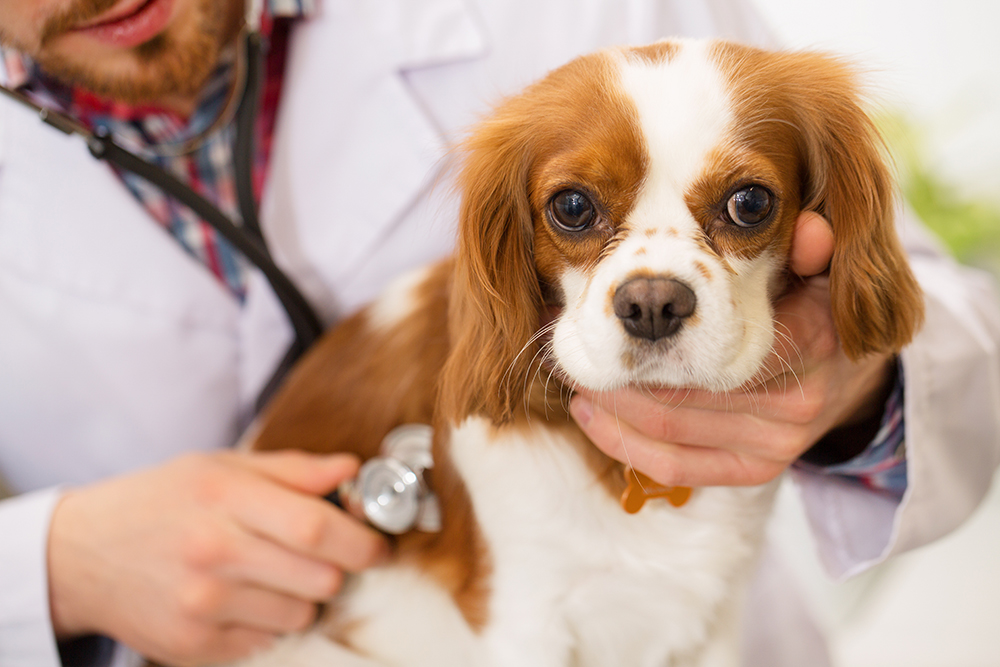
2. Syringomyelia
| Type of health problem: | Neurological |
| Treatment: | Medications, sometimes surgery |
Syringomyelia, an unusual build-up of fluid sacs around the dog’s spine, is also called “neck scratcher’s disease” after the most common symptom it causes. Cavalier King Charles Spaniels are one of several breeds that may inherit this condition.
The issue is generally related to a problem called “Chiari-like” malformation, where the dog’s small skull cannot comfortably fit brain. The resulting pressure leads to a crowding of brain tissue around the base of the skull which is the only outflow tract available. Spinal fluid flow may be obstructed, causing syringomyelia.
Besides pain and scratching at the neck, a Cavalier with this condition may shake their head frequently, have trouble walking, or even have seizures.
If your vet suspects this condition, they may send you to a veterinary neurologist for an MRI. Treatment involves giving medication for pain control and sometimes surgery, although the procedure is complicated. The risk of syringomyelia can be reduced by MRI screening prospective parents and choosing only unaffected parents to breed from.
3. Hip Dysplasia
| Type of health problem: | Orthopedic |
| Treatment: | Medications, supplements, surgery |
Hip dysplasia is another inherited joint problem, most often seen in large breed dogs, which can also impact the Cavalier King Charles Spaniel. In this condition, the dog’s hip joint doesn’t develop correctly, resulting in a loose joint, which can be painful depending on the severity. Over time, the dog will develop arthritis in this location.
Depending on how severe the hip dysplasia is, you may not notice any signs until arthritis starts, when the dog may begin limping and have trouble getting up after resting. Severe cases may require surgery to correct, while milder hip dysplasia can usually be managed with joint supplements and medications. Reputable breeders will have their prospective parents “hip scored” to reduce the chances of passing on hip dysplasia.
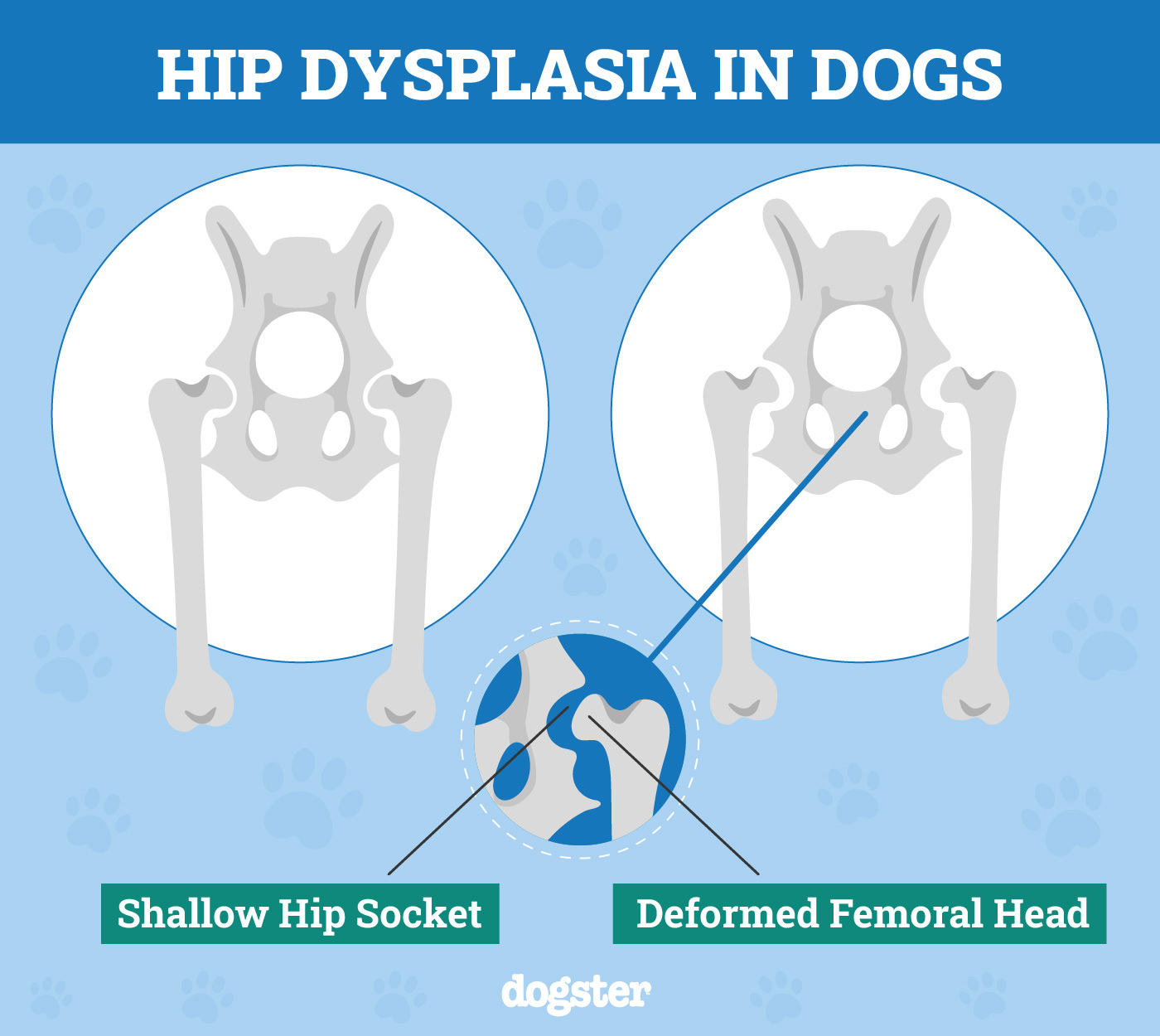
4. Luxating Patella
| Type of health problem: | Orthopaedic |
| Treatment: | Medications, supplements, surgery |
Luxating patellas, or sliding kneecaps, are one of the most encountered joint issues of small breed dogs and Cavaliers are no exception. This condition occurs when the dog’s kneecaps don’t fit properly in their groove and slip in and out randomly.
It is an inherited condition, and dogs diagnosed with it shouldn’t be bred. Symptoms include limping and “hopping” on the hind legs. Depending on how bad the Cavalier’s knees are, they may require surgery to correct the condition. Mild cases may be managed with pain medications and joint supplements.
If you are concerned about the health and well-being of your pet, we recommend getting in touch with a vet for guidance.
If you need to speak with a vet but can't get to one, head over to PangoVet. It's our online service where you can talk to a vet online and get the advice you need for your dog — all at an affordable price!
5. Retinal Dysplasia
| Type of health problem: | Eye |
| Treatment: | None |
Retinal dysplasia is the incorrect development of the retina: the part of the eye that captures light and is responsible for a dog’s vision. Dogs with this condition often have folds or lesions on their retina. In purebred dogs like the Cavalier, this is generally an inherited condition, sometimes with no visible symptoms.
Cavalier King Charles Spaniels can unfortunately develop severe forms of this condition, which can eventually lead to the entire retina detaching from the eye, causing the dog to go blind. There is no cure for this condition, and it is typically only discovered if a potential breeding dog has a special eye exam by a veterinary ophthalmologist to check for it. Cavaliers with retinal dysplasia should not be bred.

6. Ear Infection
| Type of health problem: | Ear |
| Treatment: | Cleaning, medications, occasionally surgery |
This is the only health issue on our list that isn’t technically inherited, although dogs with floppy ears, like the Cavalier, are more prone to getting ear infections in general. While most ear infections involve the outer portion of the dog’s ear, they can cause a hole or rupture in the eardrum, allowing bacteria into the delicate middle ear.
Symptoms of outer ear infections include ear discharge, head shaking, pain, and inflamed ears. If the infection extends to the middle ear, sudden hearing loss, nausea, loss of balance, and head tilt could be noted. Infected middle ears can be much harder to treat, often requiring medications by mouth as well as in the ear itself. In some cases, the Cavalier may even need surgery. You can help prevent this by regularly checking and cleaning your Cavaliers ears, and treating any ear infections promptly.

Choosing a Healthy King Charles Cavalier Puppy
Because most of the health issues on our list are inherited, finding a healthy puppy requires carefully researching potential breeders.
The Cavalier King Charles Spaniel Club in America maintains a list of recommended screening tests that all dogs being considered for breeding should undergo:
- Yearly check for a heart murmur
- Regular eye checks for retinal dysplasia and other conditions
- X-rays to check for hip dysplasia
- Vet check or x-rays to look for luxating patellas
To be extremely thorough, the club also suggests that breeding dogs have an MRI to look for Chiari-like malformation and genetic testing for any other inherited conditions.
When considering a breeder, ask to see the documentation that all the recommended screening tests have been performed on their dogs. Also, ask whether they provide a health guarantee for new puppies. As hard as it may be, try to resist buying a puppy from a breeder who avoids your questions or doesn’t perform the health tests.


Conclusion
As careful as you may be choosing a breeder, avoiding all of the Cavalier King Charles Spaniel health issues is not always possible. Because of this, it’s vital to keep up with all your dog’s preventative care and regular physical exams to catch potential problems early. Not every Cavalier will develop one or more of these health issues, but for those that do, you’ll want to start treatment as quickly as possible.
Featured Image Credit: Nestor Rizhniak, Shutterstock
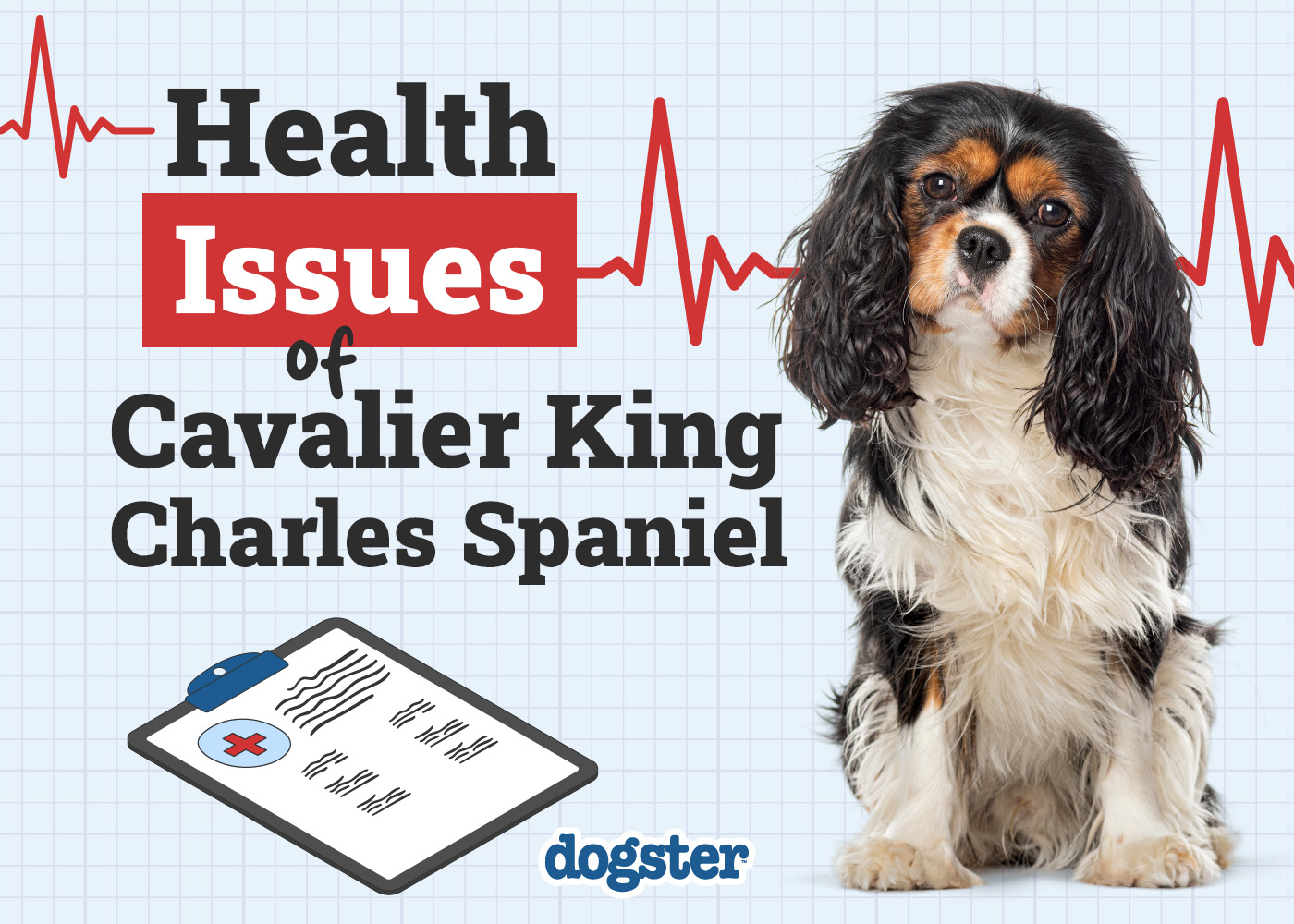

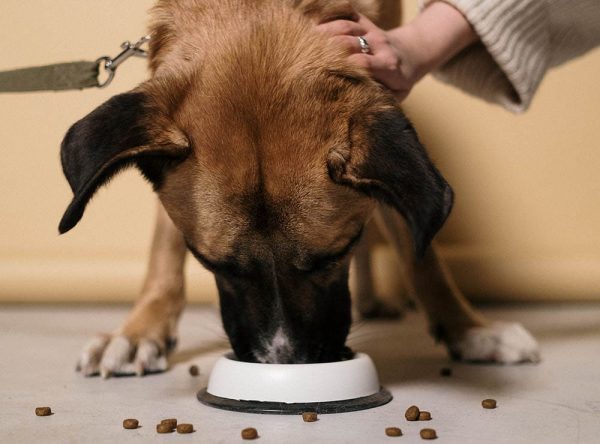

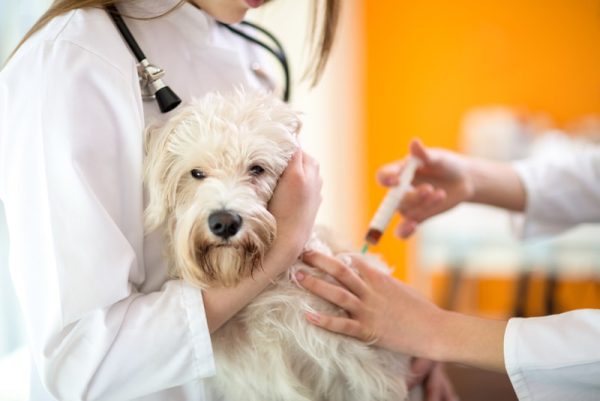

















2 Responses
What are examples of certificates that one should have on both male and female before starting a breeding/litter? I would like to share that with a potential backyard breeder.